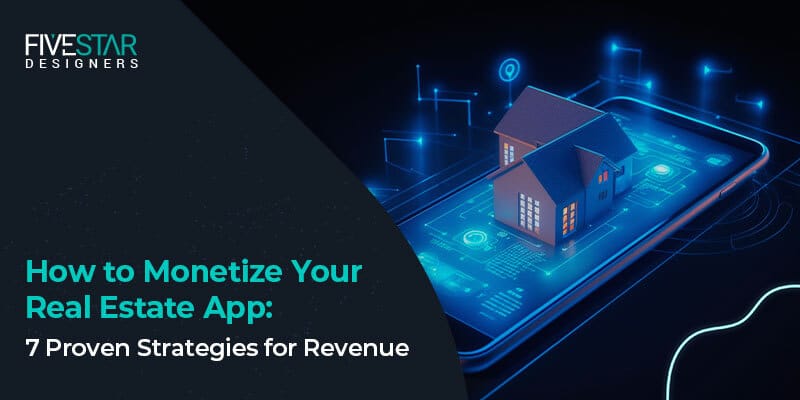Mobile applications have reshaped the way real-estate industries operate and make a profit. Real estate apps are increasingly becoming the center stage for the acquisition and sale of properties for use through purchase, lease, or investment, and thus are among the most flooded fields for commerce.
But a typical challenge for the app creators and businessmen in the real estate segment is how to transform this app into a source of constant income. Even though the conceptualization and design of apps are important, monetization methods are the true determinants.
Making a real estate app is about combining market know-how, user perspectives, and properly shaped revenue streams. To capture these needs effectively, app developers convert them into a clear monetization strategy.
Key Drivers Needed for Maximizing Monetization in Real Estate Apps
It is highly important to gain insight into the factors that influence the monetization process in applications to create powerful apps like any professional app development company. These are:
Target Audience:
The idea to monetize successfully depends on the kind of users you want to attract. An understanding of which is the dominant demographic nature as a buyer or as a seller, renter, or agent can be targeted appropriately with monetization elements.
App Features:
As an app’s features get better and its offerings more diverse, it stands a better chance of generating good revenue. Aids such as virtual tours, property suggestions, or in-application agents could offer that added service that consumers are willing to pay for.
User Engagement:
A great way to raise the level of the users’ involvement and, therefore, the ratio of successful monetization of the service proposed is the incorporation of the easy-to-navigate and individual approach of the interface.
Data-Driven Insights:
The proper use of user behavior and data analysis remains critical for improving overall monetization. The data-driven approach analyzes which features generate the most engagement to change the monetization strategy because of the real-user behavior.
Market Competition:
The competition in the app market for the real estate industry is daunting. This is why most businesses opt for an experienced mobile app agency in the UK or wherever they are located to design a real-estate app with unique features to compete.
7 Powerful Monetization Tactics to Boost Your Real Estate App’s Profitability
Here are strategies that are used by experienced real estate app development companies to ensure a steady revenue-generating process from apps. These are:
-
Exclusive Listings and Featured Property Highlights
Including an exclusive listing option or a featured option for properties is always the top option of experienced mobile app developers. Real estate agents, property managers, and sellers can pay for this to be featured in the preferred or priority positions on search results with high visibility to users.
-
Various Membership Plans for Full App Benefits
Include access to premium services through membership plans such as property info, real-time data, or the ability to compare two properties continuously. Provide multiple types of subscription models, while the first type can include casual user features and the second can have more advanced ones.
-
Sponsored In-App Ads and Brand Partnerships
Advertisement has proved to be a very effective revenue model for real estate applications. By inviting mortgage lenders, interior designers, and home insurance agents you can get advertisers inside the application. Go for banner advertising, native advertising, or sponsored listing to not disturb users.
-
Mortgage and Insurance Referral Commissions System
Most property sales include related services such as a financing of a property itself, or insurance policies. This includes keeping a commission on every mortgage provider or insurance company that you recommend. It is an effective model in which users are usually interested during the buying process.
-
Targeted Lead Generation for Real Estate Professionals
A targeted lead-generation system through professionals is highly profitable and used by multiple mobile app agencies. Thus offering a lead-generation service allows you to get paid a commission from the real estate agents who will be using your service to link them with potential buyers or sellers.
-
3D Property Experiences and Immersive Virtual Tours
This has led to increased property buyers expecting a virtual tour of the properties and 3D outlooks. This could attract not only new users but also agents for business profiles. These interactive viewing features can be charged on pay as you use, or be a part of a bundle within the premium user package.
-
Seamless Integration of Auction and Bidding Services
If your app entails properties in high-demand markets then adding an option of an auction or bidding will be very lucrative. By being integrated directly into the application, users can place bids and join property auctions which will also allow you to charge transaction fees on bids or entries to auctions.
Conclusion:
If your app aims at the right audience, takes trends into account, and provides top-shelf features, your real estate app can be viewed as potentially highly profitable while being valuable for consumers.




